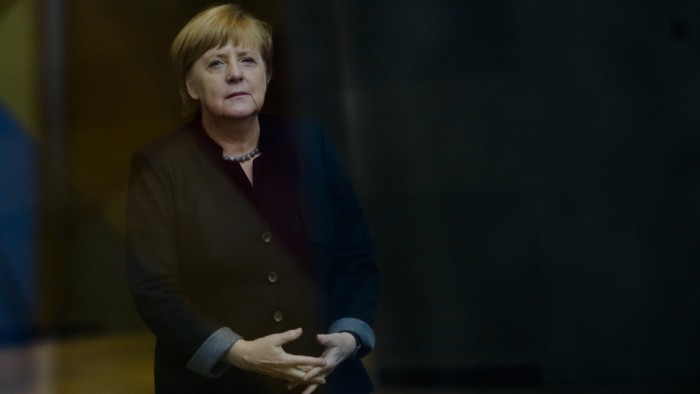German defence minister warns UK against meddling in EU security

Germany’s defence minister has warned the UK against exploiting the run-up to Brexit to block EU efforts to build closer security co-operation.
“The plea to the British is only not to block important European developments, when they say they want Brexit,” Ursula von der Leyen told the Financial Times in an interview. “It is not good to prevent Europe from organising itself better.”
Ms von der Leyen, a long-serving ally of chancellor Angela Merkel who is sometimes touted as a possible successor, was speaking after Britain criticised Franco-German plans to build a common EU defence headquarters for fear that it would lead to an EU army.
Ms von der Leyen insisted a European army was off the agenda. But she is pushing for an EU combined civilian-military headquarters that would allow EU states to pool capabilities. “The UK has signalled that it is sceptical, so it is important to explain what this is about,” she said. “It is not about a European army but about the fact that we Europeans expand our security and defence policy and so work together better, especially in complex crises in non-Nato regions, as in Africa.”
Far from undermining Nato, a stronger EU effort would strengthen the western alliance, she argued: “We need a strong European pillar in Nato.”
Some German officials suspect London might try to obstruct future EU co-operation plans to create bargaining chips that could later be used in Brexit negotiations. Ms von der Leyen hinted that she shared these concerns, saying: “There will be a bundle of questions to be dealt with. And I don’t think the bundle of questions is only about the common market.”
More broadly, she argued the case for EU defence co-operation had grown as crises multiplied and the US reduced its global reach, saying: “Two decades ago the Americans were not particularly interested in a cohesive Europe in Nato. Today they say Europe must be better set up, better organised. It is also in the interests of the British.”

Germany, the EU’s most powerful member state, is taking a greater role in global security after decades of reluctance born of concern about its Nazi past. Unlike some of her predecessors, Ms von der Leyen, 57, supports that shift wholeheartedly and has secured the largest increase in German defence spending since the cold war. “We have stepped up and done a lot more than we’ve ever done, especially in Nato” she said. “And the population nowadays accepts way more the importance of the security sector.”
While loyal to Ms Merkel, Ms von der Leyen is not considered personally close to the chancellor. CDU MPs praise her competence but many complain she is remote from the party base. Asked about speculation over her future, she deflected the question with a standard refrain: “Every generation produces a chancellor. In my generation that is Angela Merkel.”
She also urged Ms Merkel to stand again in next year’s Bundestag elections, saying: “She has led this country through difficult crises. I think it is right, precisely in these disturbing times, to have a chancellor that is reliable, has strong nerves and has a lot of international experience.”

Ms von der Leyen backed the chancellor’s refugee policy but admitted that mistakes were made in its implementation. “I think it is true that, given the scale of this challenge, we should have communicated very much better. In retrospect you are always cleverer.”
She cast the refugee crisis as an unsettling element of globalisation. “The problems of the near and Middle East are suddenly in our villages and communities, although Germany is demonstrably still one of the safest countries in the world. Terror has crept into our daily life. And that rightly causes a feeling of insecurity,” she said.
Populists in Britain, France and the Netherlands as well as in Germany do not have the answers, she argued. “The nationalist and racist solution cannot be a solution for us. Besides, this would lead to a massive decline in living standards . . . We have to point out that every citizen benefits from a country open to the world.”
She is troubled, too, about US populism in the shape of Donald Trump, with his distrust of Nato and praise for Russia's Vladimir Putin. “We are concerned to hear the remarks that he is making about Nato. The commitment to Nato belongs to the core of Nato — that we stand by each other,” said Ms von der Leyen. “It is [also] important that we have no illusions over president Putin.”
Comments